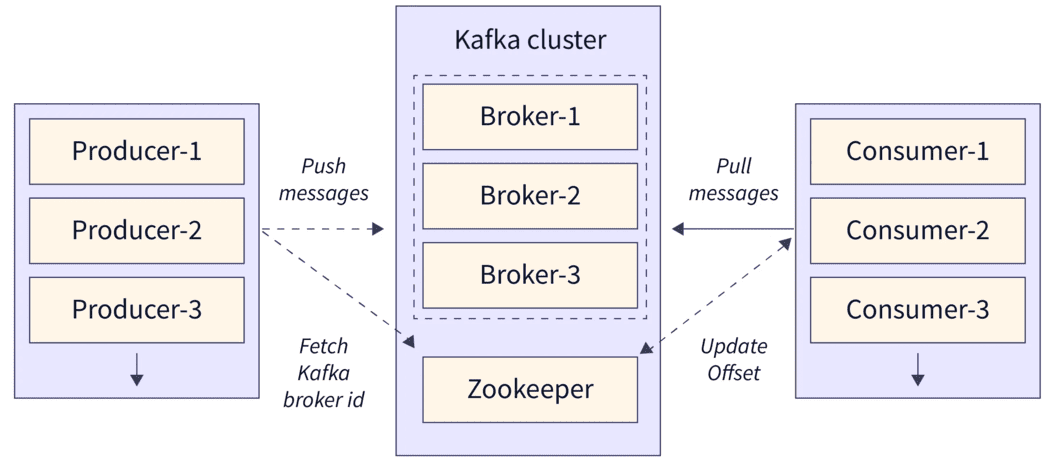Following Key Topics to Cover in Corporate Apache
Kafka Development-
1) Introduction to Apache Kafka
- Overview of Kafka Architecture
-
Core Concepts: Topics, Partitions, Producers,
Consumers, Brokers
- Installation and Configuration
- Understanding Kafka's Role in Event Streaming
2) Kafka Producer and Consumer
- Writing and Configuring Kafka Producers
- Consuming Data with Kafka Consumers
-
Handling Message Serialization and Deserialization
-
Configuring Kafka Consumer Groups and Partition
Assignments
3) Kafka Streams API
-
Introduction to Kafka Streams for Stream Processing
-
Building Stream Processing Applications with Kafka
Streams DSL
- Stateful Stream Processing with Kafka Streams
-
Testing and Debugging Kafka Stream Applications
4) Kafka Connect
-
Overview of Kafka Connect for Data Integration
-
Using Kafka Connect Connectors for Data
Import/Export
- Customizing and Extending Kafka Connect
-
Monitoring and Managing Kafka Connect Clusters
5) Kafka Administration and Operations
-
Cluster Deployment and Configuration Best Practices
-
Monitoring Kafka Clusters with Metrics and Logs
-
Scaling Kafka Clusters for Performance and Fault
Tolerance
- Backup and Recovery Strategies
6) Kafka Security
- Authentication and Authorization in Kafka
-
Securing Kafka Clusters with SSL/TLS Encryption
-
Using ACLs (Access Control Lists) for Authorization
-
Securing Kafka Connect and Kafka Streams
Applications
Mastering corporate Apache Kafka development equips
individuals to design, implement, and manage real-time
streaming data pipelines effectively. This curriculum
covers core Kafka concepts, producer and consumer
APIs, Kafka Streams for stream processing, Kafka
Connect for data integration, administration and
operations, and security best practices. By
understanding these topics, you can contribute
effectively to Kafka projects and enhance your career
prospects in the real-time data processing field.



